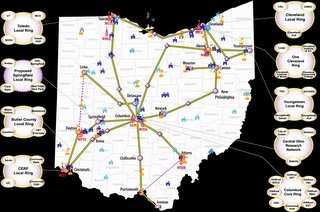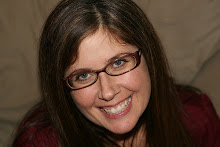As noted in my previous blog,
Senator Voinovich is holding a regional hearing on the
Appalachian Regional Commission. Unlike the
DeWine Broadband event, the ARC hearing seems to have no online posting regarding its existence. Well, it does now. The time of the event has changed a couple of times but I am told it is nailed down now.
I should note that I am a supporter of ARC. They understand the importance of community technology and broadband access. That alone makes them easier to work with than most government agencies. I did warn the Voinovich staffer that I would proclaim the wonders of ARC but follow it up with how much work is still to be done. Fortunately she did not have a problem with that :-)
Appalachian Regional Commission Reauthorization Field Hearing
Date: Thursday, April 20, 2006
From: 10:00 am – 12:00 pm
Location: Washington State Community College
Graham Auditorium
710 Colegate Drive
Marietta, Ohio 45750
Witnesses:
Panel 1: Federal, state, and regional leadership perspectives
Anne Pope, Federal Co-Chair, Appalachian Regional Commission
T.J. Justice, Director, Governor’s Office of Appalachia
Don Myers, Director, Ohio Mid-Eastern Governments Association
Panel 2: Telecommunications Progress Panel
David Matusoff, Principal and Director of Technology Planning, Whiteboard Broadband Solutions
Gary Little, President and CEO, Information Technology Alliance of Appalachian Ohio
Dr. David Scholl, President and CEO, Diagnostic Hybrids, Inc.
Angela Stuber, Executive Director, Ohio Community Computing Network and President of the National Association of Community Technology Centers
Panel 3: Water Infrastructure Progress Panel
Jeff Hughes, Director, Environmental Finance Center, University of North Carolina at
Chapel Hill
Steve Grossman, Executive Director, Ohio Water Development Authority
Ken Reed, Director, Vinton County Community and Economic Development




